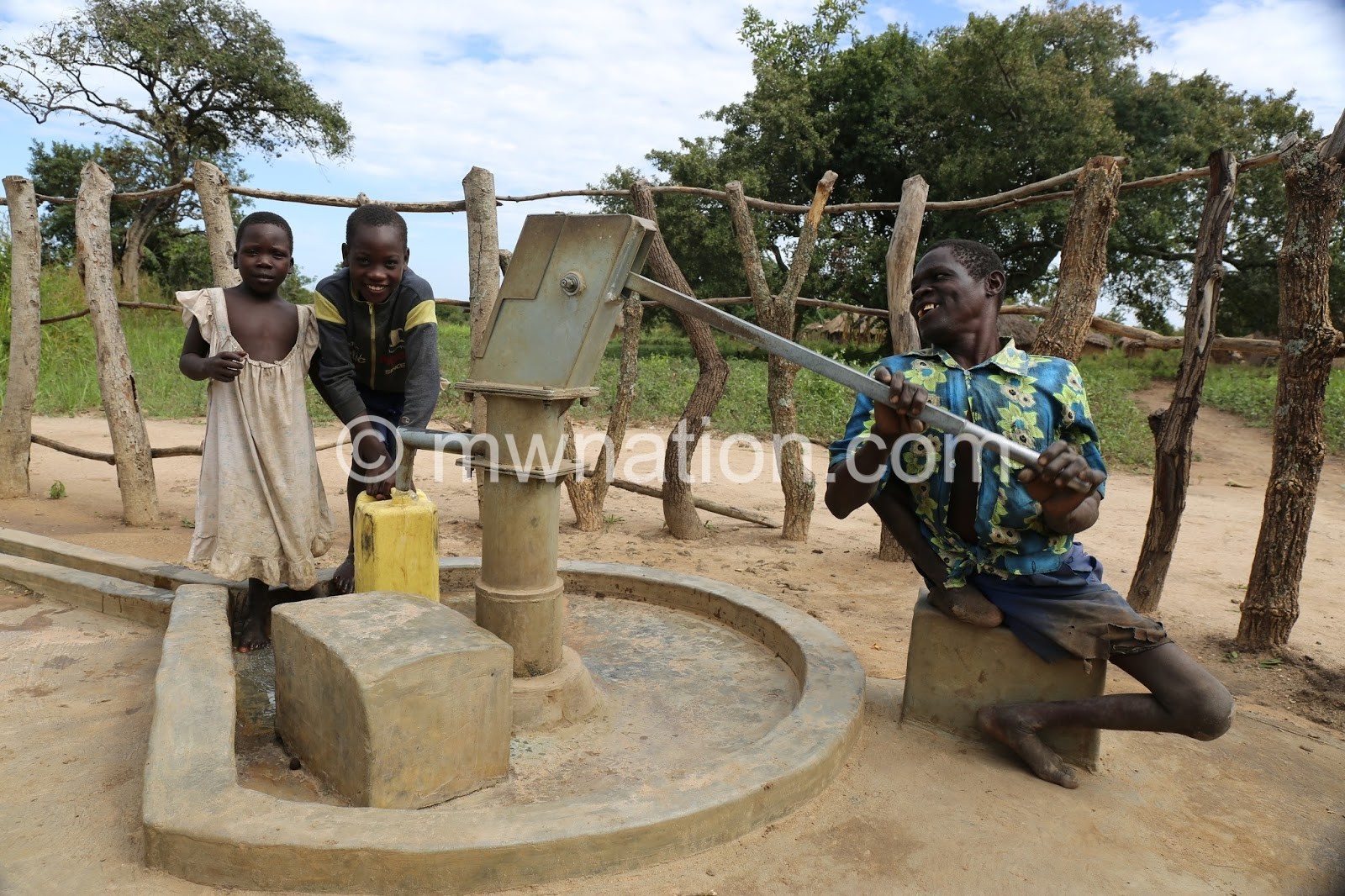Redefining accessibility for the disabled
It is around 8am in Lilongwe’s central business district and like any other Monday, it is business as usual at one commercial bank (name withheld).
Clients walk in and out. While the majority use the stairs to enter the banking hall, one client, Burton Chisale, crawls along the pavement designed for the disabled.

As he crawls up the slope, he is all praises for the designer and the bank for considering people like him. Chisale survived a road accident that robbed him of his walking ability. He can hardly stand. He says he cannot afford a wheelchair, and therefore, crawls to access anything.
But as Chisale gets into the banking hall, he realises he has been quick to praise the designers of the facility. Resting his body weight on the knees at the counter, he can hardly see the teller on the other side of the counter. It is even a problem to place the banking slips on the teller’s tray.
Surprisingly, there is no bank official to assist him.
“It’s really embarrassing to us,” says Chisale, adding: “Imagine all eyes were on me as I struggled to reach the teller.”
He says he has failed to access banking and other services in business and public buildings in the city. What Chisale went through at this bank is just one of the challenges that persons with physical challenges face in their quest to access various services.
Paradoxically, government has been preaching about making all buildings and services disability friendly. Although some steps have been taken, Chisale’s case shows that accessibility goes beyond the entrances. Desks and counters in every building need to be designed to suit those with physical challenges.
In 2007 and 2009 respectively, Malawi signed and ratified the Convention on the Rights of Persons with Disabilities to advance the global agenda on disability. Besides, the Disability Act of 2012 outlines provisions for the equalisation of opportunities for persons with disabilities through promotion and protection of their rights
Under Section 8 (d), the Act mandates government to take appropriate measures to ensure attainment of a barrier-free environment that enables the disabled to have access to public and private buildings and establishments and other such places in line with universal designs.
There are even penalties for those who contravene this. Section 9 (2 a and b) of the same Act sets penalties of K100 000 and K1 million for a natural person or corporate body respectively, who contravenes sub-section 9 (1) of the Act, which stipulates that ‘No person shall be denied access or admission to any premises or the provision of any service or amenity, on the basis of disability’.
During the launch of the Disability Awareness Month on Saturday in Lilongwe, the Ministry of Gender, Children, Disability and Social Welfare Jean Kalirani noted with great concern that despite the laid guidelines to have all buildings accessible to everyone, the compliance rate is very minimal.
She appreciated how people with physical challenges struggle to access some facilities. She told the gathering that she saw a fellow senior politician with physical challenges failing to attend a meeting at one of the hotels in Blantyre due to lack of pavements that support those on wheelchair to go to the upper floors where the meeting was to be convened.
“Imagine, we could not carry the person,” explained Kalirani.
She says during the disability awareness month, her ministry will be inspecting buildings to check compliance and they will start with Capital Hill.
However, with or without inspection, Capital Hill is restrictive in nature. Ministry of Transport and Public Works chief architect Knight Munthali, says the original planning of the building did not incorporate alternative ways for people with disabilities.
He says about a decade ago, a directive was made that all government buildings should be accessible and that’s what they are doing at every new construction.
He reveals: “For Capital Hill, it is impossible to modify the design or install a lift because of the way the buildings were designed.”
But while some planners of private and public buildings in the country are constructing access ramps alongside stairs to support people with physical challenge, Beaton Mwale, who uses a wheelchair describes
these ramps as death traps.
“The pavements are too steep and I need someone to support me both up and down,” says Mwale.
On December 3, Malawi joined the world in commemorating the International Day of Persons with Disability (IDPD) under the theme ‘Achieving all the 17 Sustainable Development Goals (SDGs) for the Future we Want’. The theme is in line with the SDGs and for Malawi, it is a matter of doing the right thing.
According to Munthali, there are good laws that promote the rights of persons with disabilities, but are contravened on daily basis. This means until government and its stakeholders seriously stand up to walk the talk, the disabled will always wonder if they count.





